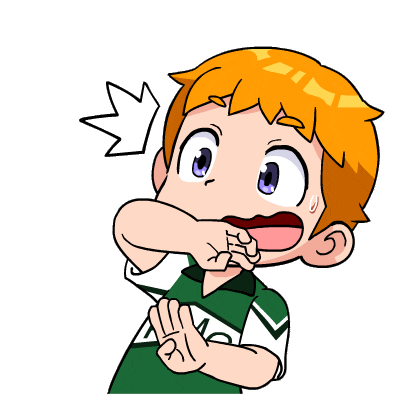
Fuente/Source
Recuerdo que mi mamá siempre me decía que si algo me encontraba en la calle no debía tomarlo para mí, no solo por el hecho de que no era mío y que tal vez no lo necesitaba (porque la mayoría de cosas eran basura), sino porque podía haber algo turbio detrás de ese objeto llamativo o billete tentador, ya que muchas veces el hampa incluso hacía uso de juguetes tirados en algún parque para atrapar a los niños inocentes y desprevenidos, sobre todo, aquellos que se encuentran en un estado de vulnerabilidad mayor al no tener un hogar definitivo ni definido, sino que viven en situación de mendicidad.
I remember my mother always telling me that if I found something on the street I shouldn't take it for myself, not only because it wasn't mine and maybe I didn't need it (because most of the things were trash), but because there could be something shady behind that eye-catching object or tempting bill, since many times the underworld even made use of toys thrown in some park to catch innocent and unsuspecting children, especially those who are in a state of greater vulnerability by not having a definitive or defined home, but rather live in a situation of begging.

Fuente/Source
Para mi entender, la manera en que ella pensaba parecía muy exagerada, pero conforme fui creciendo comencé a notar que tenía lógica su actitud maternal incluso cada vez que revisaba mi mochila de la escuela para ver si yo había llevado algo que no era mío a la casa, porque así, ella decía que podía controlar ciertas mañas en los niños que no comprenden del todo el concepto de "propiedad exclusiva", quienes, por su edad y poco entender entre el límite de lo ajeno y propio, se llevaban o sustraían algo de sus amigos como si tuvieran tendencias apegadas a la cleptomanía o al hurto sin necesidad de ser víctimas de maltrato psicológico en sus hogares o por necesidad imperiosa de llamar la atención de sus familiares debido a que se sentían excluidos.
To my understanding, the way she thought seemed very exaggerated, but as I grew up I began to notice that her maternal attitude was logical, even every time she checked my school backpack to see if I had brought something home that wasn't mine, because that way, she said, she could control certain habits in children who don't fully understand the concept of "exclusive property," who, due to their age and little understanding of the limit between what's another's and their own, would take or steal something from their friends as if they had tendencies attached to kleptomania or theft without needing to be victims of psychological abuse at home or out of an urgent need to get their family's attention because they felt excluded.
Toda una psicóloga mi mamá... ella me conocía bien y sabía que yo no iba jamás a cometer algo así, sin embargo: "por si las moscas, dame tu mochila, hija", solía decirme para luego ejecutar su plan diario de requisa, no solo en mí, sino en mi hermanos mayores también.
My mother was quite the psychologist... she knew me well and knew that I would never do something like that, however: "just in case, give me your backpack, daughter," she used to tell me and then carry out her daily search plan, not only on me, but on my older brother and sister as well.
Puede que también les parezca exagerada esa teoría de mi mamá que por supuesto era apoyada por mi papá, bendita sea su memoria, sobre las manos inquietas de los niños que toman pertenencias ajenas sin permiso para hacerlas suyas, pero yo fui testigo del caso de la hija de una amiga que, mientras estábamos en la farmacia comprando algunas cosas, la niña se metió en el bolsillo de su vestido unos dulces que estaban exhibidos en una estantería, podía pedírselos a su mamá, pero no, no fue así, sino que consideró que lo mejor sería llevárselos sin pagar.
You may also find my mother's theory, which was of course supported by my father, bless his memory, about the restless hands of children who take other people's belongings without permission to make them their own, exaggerated, but I witnessed the case of a friend's daughter who, while we were in the pharmacy buying some things, the girl put some candy that was on display on a shelf in the pocket of her dress. She could have asked her mother for them, but no, she didn't. Instead, she thought it would be best to take them without paying.

Fuente/Source
Sé que ni mi amiga ni su esposo jamás, nunca influenciaron en su hija de 7 años para que esconda esos dulces de la vista de todos los que estábamos en la farmacia, y menos que ambos como padres estuvieran preparándola para que en el futuro se convirtiera en una delincuente juvenil y profesional, como pasó en el caso de la película en donde Natalie Portman y Jean Reno son sus protagonistas: The professional.
I know that neither my friend nor her husband should ever, ever have influenced their 7-year-old daughter to hide those sweets from the sight of everyone in the pharmacy, and even less so that both of them as parents were preparing her to become a juvenile and professional delinquent in the future, as happened in the case of the film starring Natalie Portman and Jean Reno: The Professional.
Sin embargo, como le dije a mi amiga cuando se dio cuenta de lo que su hija hizo y quiso pegarle en las manos para que devolviera a la estantería lo que había escondido: "a veces los niños no miden las consecuencias de sus actos, por su misma mentalidad en desarrollo, para ellos, este tipo de prácticas son normales, igual a como cuando juegan en los dedos con los mocos que se sacan de la nariz para luego comérselos porque les parecen deliciosos, un manjar".
However, as I told my friend when she realized what her daughter did and wanted to hit her hands to make her put back what she had hidden on the shelf: "Sometimes children do not measure the consequences of their actions, because of their developing mentality. For them, this type of practice is normal, just like when they play with their fingers with the snot they get out of their nose and then eat it because they think it is delicious, a delicacy."
Volviendo al tema de encontrarse cosas en la calle, pues el día viernes en la mañana, el hijo de mi hermana mayor se encontró un billete de 20 € mientras íbamos al supermercado a comprar algunas cosas que nos hacían falta en la casa. Obviamente, él estaba contentísimo con el descubrimiento del que yo no me percaté, pero le dije, como mi mamá en el pasado, que dejara el billete tirado en el sitio en donde lo encontró.
Back to the topic of finding things on the street, on Friday morning, my older sister's son found a €20 note while we were going to the supermarket to buy some things we needed for the house. Obviously, he was very happy with the discovery, which I didn't notice, but I told him, like my mother in the past, to leave the note lying where he found it.
Él se admiró de mi petición porque dijo que se lo había encontrado y no quitado a nadie, que no hay un dueño al que entregárselo, entonces yo le respondí que por el hecho de que no haya un dueño, él no podía adueñarse de algo que se encontró y como tampoco era una cantidad que tenga que ser entregada a la policía, le repetí por segunda vez que dejara el billete en donde lo encontró.
He was surprised by my request because he said that he had found it and had not taken it from anyone, that there was no owner to return it to, so I responded that because there was no owner, he could not take possession of something that he found and since it was not an amount that had to be handed over to the police, I repeated for the second time that he should leave the bill where he found it.

Fuente/Source
Al inicio estaba reacio, hasta se enojó con su tía favorita al parecerle absurda mi decisión y orden directa, pero cuando nos subimos al taxi, aunque no me dirigía la palabra, le dije que había hecho lo correcto y saqué de mi cartera un billete de 20 € como el que se encontró y se lo di... era como una compensación con dinero del que conocía su procedencia porque era mío, era como un premio a su obediencia sin más cuestionamientos que el "tía, ¿por qué no puedo llevármelo si no es de nadie?"
At first he was reluctant, he even got angry with his favourite aunt because my decision and direct order seemed absurd to him, but when we got into the taxi, although he didn't say a word to me, I told him that he had done the right thing and I took a €20 note out of my wallet like the one he found and gave it to him... it was like compensation with money whose origin I knew because it was mine, it was like a reward for his obedience without any more questions than "aunt, why can't I take it if it doesn't belong to anyone?"
Le dije también que si se encontraba dinero en la calle y no hay un dueño a quien entregárselo, muy simple: no se lo quede, sino que lo done a una persona que pida caridad en la calle, porque de ellas, con verdaderas necesidades alejadas a los vicios, el mundo está lleno... Entendió mi mensaje, entendió lo que quería enseñarle como su tía y tutora encargada porque sus padres están fuera de la ciudad, y hasta me abrazó, no sé si nada más porque entendió, o porque le di un billete adicional al que suelo darle como parte de la mesada que cada semana les entrego a todos mis sobrinos y pongo también algunos euros en el "gama chan" de cada uno de mis hijos.
I also told her that if she found money on the street and there was no owner to give it to, it was very simple: don't keep it, but donate it to a person who asks for charity on the street, because the world is full of such people, with real needs far from vices... She understood my message, she understood what I wanted to teach her as her aunt and guardian in charge because her parents are out of town, and she even hugged me, I don't know if it was just because she understood, or because I gave her an extra bill to the one I usually give her as part of the pocket money that I give to all my nephews and nieces every week and I also put some euros in the "gama chan" of each of my children.

Fuente/Source
Bueno... caminar por la calle y encontrarte algo que no te pertenece puede parecer un golpe de suerte, un detalle del destino que quiso cruzarse en tu camino, pero más allá del brillo tentador de un billete perdido o el encanto de un objeto olvidado está la pregunta que nos define: "¿qué hacemos con aquello que no es nuestro?"
Well... walking down the street and finding something that doesn't belong to you may seem like a stroke of luck, a detail of fate that wanted to cross your path, but beyond the tempting shine of a lost bill or the charm of a forgotten object is the question that defines us: "what do we do with that which is not ours?"
Devolver lo que encontramos no se trata de un acto de bondad, sino el reflejo de nuestros valores y crianza parental, es entender que detrás de ese objeto hay alguien que lo necesita, alguien que probablemente está buscando, recordando, lamentando su pérdida. Ese acto de entrega nos conecta con esa persona desconocida, teje un hilo invisible entre nuestras vidas y nos recuerda que, en esencia, somos parte de una misma red de vulnerabilidades y esperanzas, suele decir mi esposo en nuestras pláticas cotidianas después del trabajo.
Returning what we find is not an act of kindness, but rather a reflection of our values and parenting. It is about understanding that behind that object there is someone who needs it, someone who is probably searching, remembering, mourning their loss. That act of giving connects us with that unknown person, weaves an invisible thread between our lives and reminds us that, in essence, we are part of the same network of vulnerabilities and hopes, my husband often says in our daily conversations after work.
Cuando elegimos devolver algo, también estamos devolviendo un poco de confianza al mundo porque en un momento donde la desconfianza parece ser el idioma común sobre todo con lo relacionado a la política, un gesto desinteresado puede ser suficiente para recordarle a alguien que todavía existen razones para creer en los demás. No importa si es una billetera vacía o llena, un anillo, una tarjeta de crédito, o incluso algo aparentemente sin valor, lo importante es el mensaje, tal cual le decía a mi sobrino: “Tu pérdida importa. Tu tranquilidad importa”.
When we choose to give something back, we are also giving back a little bit of trust to the world because in a time where distrust seems to be the common language especially when it comes to politics, a selfless gesture can be enough to remind someone that there are still reasons to believe in others. It doesn’t matter if it’s an empty or full wallet, a ring, a credit card, or even something seemingly worthless, what matters is the message, just like I told my nephew: “Your loss matters. Your peace of mind matters.”
Actuar con integridad no siempre es fácil, a veces, la tentación de quedarnos con algo que parece “caído del cielo” puede ganarnos por un instante, pero devolverlo es una declaración bienintencionada, una decisión consciente de elegir el bien común sobre el beneficio personal y, aunque a veces ese acto pase desapercibido o no sea agradecido, el mayor premio no es el reconocimiento externo, sino saber que hiciste lo correcto, que elegiste ser una chispa de luz en un mundo que a menudo camina entre sombras.
Acting with integrity is not always easy. Sometimes, the temptation to keep something that seems to have “fallen from the sky” can win us over for a moment, but giving it back is a well-intentioned statement, a conscious decision to choose the common good over personal gain. Even though this act may sometimes go unnoticed or be unappreciated, the greatest reward is not external recognition, but knowing that you did the right thing, that you chose to be a spark of light in a world that often walks in shadows.
Devolver lo ajeno es también un recordatorio para nosotros mismos, porque alguna vez, cada uno de nosotros ha perdido algo: una llave, un objeto importante, o incluso la fe en las personas, entonces, qué alivio saber que existe la posibilidad de que, así como podemos dar, también podemos recibir. Es un ciclo que nos mantiene unidos, un pequeño pacto de humanidad que, aunque silencioso, tiene el poder de transformar días enteros.
Giving back what belongs to others is also a reminder to ourselves, because at some point, each of us has lost something: a key, an important object, or even faith in people, so what a relief to know that there is a possibility that, just as we can give, we can also receive. It is a cycle that keeps us together, a small pact of humanity that, although silent, has the power to transform entire days.
Encontrar algo que no tiene un dueño visible nos coloca en una encrucijada ética, esa línea borrosa entre lo correcto y lo conveniente. Cuando intentas buscar al propietario y no lo encuentras, surge la pregunta inevitable: ¿es legítimo quedártelo?, pues al no haber un destinatario claro, parece que el peso de la decisión recae completamente en ti, y no hay una respuesta universal que calme esa inquietud interna.
Finding something that doesn't have a visible owner puts us at an ethical crossroads, that blurred line between what's right and what's convenient. When you try to find the owner and can't find him, the inevitable question arises: is it legitimate to keep it? Because there is no clear recipient, it seems that the weight of the decision falls entirely on you, and there is no universal answer that calms that internal uneasiness.

Fuente/Source
Lo primero que surge es la sensación de haber hecho lo posible porque preguntaste, buscaste, trataste de devolverlo, pero las circunstancias no lo permitieron. En ese punto, quedarse con lo encontrado puede parecer razonable, incluso práctico, porque no hay un camino claro hacia otro desenlace, sin embargo, creo que ahí es donde entra en juego nuestra brújula ética. ¿Qué significa para ti integridad? ¿Es solo devolver lo que tiene un dueño visible o es algo más profundo, como cuestionar si quedarte con ello es la elección más alineada con tus valores?
The first thing that comes up is the feeling of having done everything possible because you asked, you searched, you tried to return it, but circumstances did not allow it. At that point, keeping what you found may seem reasonable, even practical, because there is no clear path to another outcome, however, I think that is where our ethical compass comes into play. What does integrity mean to you? Is it just returning what has a visible owner or is it something deeper, like questioning whether keeping it is the choice most aligned with your values?
En algunos casos, quedarte con lo encontrado no se siente como un acto deshonesto, sino como una consecuencia natural de una búsqueda infructuosa, pero incluso ahí, la intención cuenta porque si lo haces con el entendimiento de que agotaste las opciones y no como una excusa para justificar una omisión, entonces probablemente estás actuando con integridad. La ética no siempre es rígida y a menudo se adapta a las circunstancias, pero nunca debe usarse como un permiso para ignorar lo que sabemos que es correcto.
In some cases, keeping what you find doesn’t feel like a dishonest act, but rather a natural consequence of a fruitless search, but even there, intention counts because if you do it with the understanding that you’ve exhausted your options and not as an excuse to justify an omission, then you’re probably acting with integrity. Ethics aren’t always rigid and often adapt to circumstances, but they should never be used as permission to ignore what we know to be right.
Aun así, el hecho de que no puedas devolver algo no significa que ese objeto o dinero te pertenezca. Hay quienes eligen entregarlo a una institución, a una causa, o dejarlo donde pueda ser encontrado por su dueño. Es una manera de reconocer que, aunque no hay una solución perfecta, siempre hay opciones que trascienden el beneficio personal. Si decides quedarte con lo que encontraste, no necesariamente estás actuando mal, pero es una decisión que merece reflexión sincera y personal. ¿Qué representa para ti ese objeto o dinero? ¿Es una solución para una necesidad real o simplemente algo que alimenta el deseo de tener? Estas preguntas pueden no cambiar el hecho en sí, pero sí la forma en que percibes tus propias acciones porque más que las reglas externas, está primero la relación con tu conciencia, con lo que determinará si te sientes en paz o incómodo.
Still, just because you can't return something doesn't mean that the item or money belongs to you. There are those who choose to give it to an institution, a cause, or leave it where it can be found by its owner. It's a way of recognizing that, although there is no perfect solution, there are always options that transcend personal benefit. If you decide to keep what you found, you're not necessarily acting wrongly, but it's a decision that deserves sincere and personal reflection. What does that item or money represent to you? Is it a solution to a real need or simply something that fuels the desire to have? These questions may not change the fact itself, but they may change the way you perceive your own actions because more than external rules, there is first the relationship with your conscience, which will determine whether you feel at peace or uncomfortable.
La integridad no siempre es un camino recto, y las situaciones ambiguas son las que realmente ponen a prueba nuestras convicciones. Lo importante es actuar con honestidad hacia ti mismo, no justificar decisiones apresuradas y, sobre todo, recordar que cada elección que hacemos, por pequeña que parezca, contribuye a definir quiénes somos.
Integrity is not always a straight path, and ambiguous situations are the ones that really test our convictions. The important thing is to act honestly towards yourself, not to justify hasty decisions and, above all, to remember that every choice we make, however small it may seem, contributes to defining who we are.
Entonces, como consejo que no suena a obligación y mucho menos a idealismo, la próxima vez que encuentres algo que no te pertenece, creo que deberías pensar en el impacto que puedes tener, en la historia que puedes cambiar porque más allá del objeto o el billete en sí, lo que realmente estás devolviendo es un poco de ti, de esperanza, de lo que eres y lo que quieres significar para los demás.
So, as a piece of advice that doesn't sound like an obligation and much less like idealism, the next time you find something that doesn't belong to you, I think you should think about the impact you can have, the history you can change because beyond the object or the bill itself, what you are really giving back is a little bit of yourself, of hope, of what you are and what you want to mean to others.
Integridad es una de esas palabras que parecen más grandes que la vida misma porque nos la enseñan como un ideal casi inalcanzable, un estándar tan alto que a veces se siente lejano, pero si la miramos con ojos más humanos, con menos perfección y más autenticidad, la integridad no es otra cosa que vivir en coherencia con lo que pensamos, sentimos y hacemos... no se trata de ser idealistas, sino conscientes porque en términos reales, ser una persona íntegra no significa que nunca se equivocó, equivoca o equivocará, sino que reconoce lo que hace y está dispuesta a asumir las consecuencias. Ser íntegro es igual o superior a cumplir nuestras promesas, incluso las pequeñas que parecen insignificantes porque en esos detalles se construye también nuestra credibilidad.
Integrity is one of those words that seem larger than life itself because we are taught it as an almost unattainable ideal, a standard so high that sometimes it feels far away, but if we look at it with more human eyes, with less perfection and more authenticity, integrity is nothing other than living in coherence with what we think, feel and do... it is not about being idealists, but rather being aware because in real terms, being a person of integrity does not mean that one has never made a mistake, is wrong or will never make a mistake, but rather that one recognizes what one does and is willing to assume the consequences. Being honest is equal to or greater than keeping our promises, even the small ones that seem insignificant because our credibility is also built on those details.
Integridad es decir lo que pensamos, pero con cuidado y respeto, sin usar la verdad como un arma para herir, así es como creo que la integridad no exige perfección, sino intención: el deseo constante de ser fieles a nuestros valores, aunque eso implique incomodidad o sacrificio. Mi esposo suele decir que la integridad es algo que podemos medir en nuestras decisiones diarias. ¿Hacemos lo correcto cuando nadie está mirando? ¿Actuamos con honestidad incluso cuando sería más fácil no hacerlo?
Integrity is speaking our minds, but with care and respect, without using the truth as a weapon to hurt. That is how I believe integrity does not require perfection, but intention: the constant desire to be true to our values, even if it means discomfort or sacrifice. My husband often says that integrity is something we can measure in our daily decisions. Do we do the right thing when no one is looking? Do we act honestly even when it would be easier not to?
Integridad también significa devolver un cambio mal dado en vez de pensar que estábamos de suerte o quien nos vende algún producto estuvo despistado al borde de no percatarse de una mala operación matemática de suma o resta. Integridad también es llegar a tiempo a una cita porque valoramos el tiempo de los demás, o reconocer un error antes de que alguien más lo señale, estas no son grandes gestas heroicas, pero en su acumulación, construyen el peso de nuestra palabra y la confianza que los demás depositan en nosotros.
Integrity also means returning bad change instead of thinking we were lucky or that the person selling us a product was absent-minded to the point of not noticing a bad addition or subtraction math operation. Integrity also means arriving on time to an appointment because we value other people's time, or recognizing a mistake before someone else points it out. These are not great heroic deeds, but in their accumulation, they build the weight of our word and the trust that others place in us.
La integridad también es aceptar nuestras contradicciones, porque no siempre somos coherentes y no siempre tenemos claro lo que queremos o creemos, pero incluso ahí, la integridad se refleja en el esfuerzo por entendernos, por buscar esa armonía interna que nos permita vivir con más paz y menos conflicto. No es una meta que alcanzas una vez y ya está, sino un camino que recorres, una elección que haces una y otra vez mientras tienes vida.
Integrity is also accepting our contradictions, because we are not always coherent and we are not always clear about what we want or believe, but even there, integrity is reflected in the effort to understand ourselves, to seek that internal harmony that allows us to live with more peace and less conflict. It is not a goal that you reach once and that's it, but a path that you walk, a choice that you make again and again as long as you are alive.
Es fácil justificarse, dar excusas que sobran e intensificar la prisa que nos empuja a olvidar lo esencial, por eso es que la integridad no tiene que ser una carga, sino más bien, un recordatorio amable de que podemos construir una vida en la que lo que decimos y hacemos tenga peso, una vida en la que las personas sepan quiénes somos realmente porque nuestras acciones lo demuestran. Es realista porque no exige la perfección, es alcanzable porque no depende de los demás, sino de nosotros mismos, y es medible porque se nota en los resultados: en la confianza que inspiramos, en la paz con la que dormimos y en la satisfacción de saber que estamos siendo humanos responsables, aunque sea a pequeños pasos.
It is easy to justify ourselves, to make unnecessary excuses and to intensify the rush that pushes us to forget what is essential, that is why integrity does not have to be a burden, but rather, a gentle reminder that we can build a life in which what we say and do has weight, a life in which people know who we really are because our actions demonstrate it. It is realistic because it does not demand perfection, it is achievable because it does not depend on others, but on ourselves, and it is measurable because it is noticeable in the results: in the confidence we inspire, in the peace with which we sleep and in the satisfaction of knowing that we are being responsible humans, even if it is in small steps.

Creo que hasta aquí llegaré con mi reflexión personal el día de hoy, sin antes decirles que la traducción al inglés de esta publicación la realicé con ayuda de una inteligencia artificial. Gracias por acompañarme en la lectura de principio a fin. Quiera mi Amo, Creador y Sustentador permitirnos a mi esposo y a mí compartir con ustedes en una nueva oportunidad que se nos otorgue la vida.
I think this is where I will end my personal reflection today, without first telling you that the translation into English of this post was done with the help of artificial intelligence. Thank you for accompanying me in reading it from beginning to end. May my Master, Creator and Sustainer allow my husband and I to share with you in a new opportunity that is granted to us in life.
Un fuerte abrazo y un excelente inicio de semana, con paz por todo rincón.
A big hug and an excellent start to the week, with peace in every corner.
Atte,
La familia RebeJumper / The RebeJumper family ©

Hace poco, Daniel tenía que cobrar un saldo al cliente que le vendió una computadora gamer porque como sabes, él tiene ese negocio adicional a su profesión. Me pidió que lo acompañara a la oficina de la persona a la que tenía que cobrar y fuimos juntos. Nos recibió muy atento y dijo que el cheque se lo entregaría la secretaria, que tenía fondos en el banco y que podía cobrarlo sin problemas.
Recibió el cheque y me pidió que lo acompañara al banco. Estábamos en la fila y cuando debía acercarse a la caja, yo me fui a la zona de espera y cuando salió, estaba pálido, con algunas bolsas de papel. Yo le pregunté qué había pasado y me contó que por un error de la secretaria, le dieron en el banco 5 millones de pesos en vez de 500000 pesos que era el saldo que tenía que cobrar.
Si Daniel no hubiese sido una persona con integridad, él tranquilamente podía quedarse con esos milloncitos porque al final el cheque estaba firmado por su cliente, todo era legal, solo que hubo un aumento de ceros por error de la secretaria.
Regresamos a la oficina con el dinero para explicarles lo que había pasado y Daniel le dijo a su cliente que no le llame la atención a su secretaria, que son cosas que pueden pasar, y él le contestó que por la honradez de Daniel, el excedente de dinero estaba de vuelta, pero ¿qué hubiese pasado si era una persona a la que no le importaba regresar el dinero que fue dado por error, pero que a la final era legal porque su firma constaba en el cheque, autorizando el pago?
Muchas gracias por el post de hoy, mi querida Rebe, qué lindo, me encantó la manera en que desarrollaste el tema de la integridad porque es un estandarte de los valores que queda en palabras, telas o papel, pero el momento de practicar, nos quedamos cortos sin siquiera formularnos preguntas, sino en asumir que podemos tomar lo que no es nuestro, pero con la excusa de que no se sabe quién es el dueño porque está en la calle.
Saludos y un abrazote para ti, para el doctor Benjamín y para toda la familia que los acompaña. Un excelente inicio de semana y que Dios los bendiga grandemente 🤗🤗
PD: Sobre Gama chan, yo tengo un monedero de ranita de Naruto, me encanta, y no sé si sabías que Naruto todavía, ya adulto y con hijos, tiene a gama chan con él... Ese monedero de ranita a ha sido su más grande compañero, vacío a veces y lleno a desbordar también, con el gif que pusiste me recordaste esa historia cuando él se ganó un juego de lotería cuando se fue con el sabio pervertido a entrenar jejeje